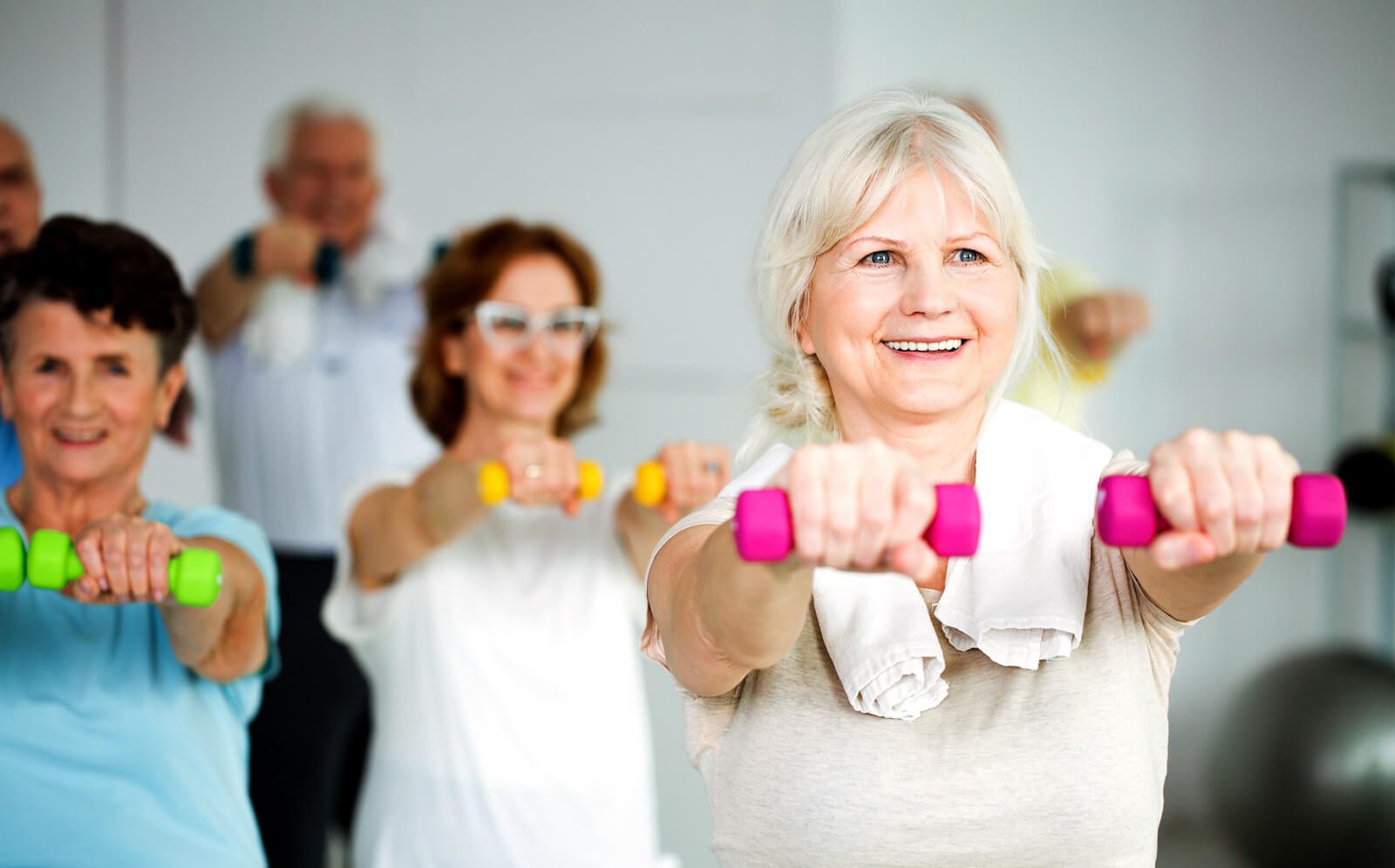There is indisputable evidence that exercise and activity produces a myriad of health benefits. Yet, health professionals get often get a fair bit of ‘push-back’ from clients when it comes to encouraging exercise, and compliance amongst older people is particularly poor.
There are a number of reasons (excuses even) for this, most of which though are not valid. Here, we debunk some of the common myths about exercise for older people.
I’m too old
Despite what the old saying says, you can teach an old dog new tricks. The body is a remarkable thing. No matter what you age, muscles will still grow in size and strength if they are trained, soft issue will regain length with stretching and joints will gain range of motion with movement. In addition to this, with recent advances in the understanding of how the brain works and ‘neuroplasticity’, new neural connections can be formed with training at any age, meaning we can learn or re-learn skills!
I can’t do much
Many people may be limited with the amount of exercise they can do because of fatigue or aches and pains. This does not mean you should do nothing! Marathon runners don’t train by running marathons, they run smaller distances regularly and build up over time. Likewise, you should choose an amount your body can cope with, even a small amount, but do it regularly. This way, the body will adapt to this new load you are placing on it, and you will then be able to build up gradually over time.
I have sore joints
Joint degeneration and arthritis go hand in hand with aging unfortunately, and some people suffer from this pain more than others. Exercise actually lubricates joints and maintain movement and strength around joints. This has been shown to actually reduce pain levels over time if an appropriate amount of exercise is performed.
I’m too weak, I’ve just been in hospital
This is the time you need to exercise arguably more than ever. Your strength just doesn’t come back on its own after a period of illness or hospitalisation. You need to challenge your body and get it used to loads again through exercise. Otherwise, you are at risk of never getting back to your previous level of function. The body atrophies very quickly with inactivity, but the flipside is, you can regain strength and function by appropriately stressing your body with exercise.
I don’t have time
Be creative! Try and incorporate exercise into your day. Do some seated exercises in your chair whilst you watch the evening news. Balance on 1 leg while you brush your teeth. When you are reaching down into the bottom drawer, squat down 10 times instead of just the once. That way you are exercising without needing to set aside a specific time.
I’m afraid of falling and hurting myself
A fear of falling is very common in older people, particularly if you have had a previous fall. Avoiding exercise will actually increase your fear and risk of falling. Appropriate exercise, will improve your strength and balance and reduce your fear of falling.
I’m sick / I have health problems
No matter what health condition you have, some form of exercise will benefit you. The type and amount of exercise may need to be carefully prescribed, but exercise is not contraindicated outright for any health condition. From heart, lung, joint or muscular conditions, to neurological conditions such as Parkinson’s disease or stroke to amputations, some form of exercise will give you significant health benefits. It often just needs to be tailored to your needs.
I get too short of breath
If you have a lung condition, such as emphysema for example, that leaves you short of breath and unable to do very much, an exercise program designed specifically for these conditions will benefit you. In fact, it has been shown to be the most effective intervention for this problem.
I’ve never been an exercise person
For some people, it may seem a chore. Like most things, getting started is the hardest part. Once you have got a bit of momentum behind you, it’s much easier to continue. Try and commit yourself to doing exercise every day for 3 weeks. By setting yourself a time frame, it will be more achievable. After 3 weeks, you will likely find it far less of a chore, and you may actually start to like it! Exercise releases endorphins which make us feel good about ourselves, which will also have a positive effect on any pains you may have, as well as your mental health.
It’s boring
Try and find an exercise buddy. Maybe someone you can regularly walk with, or join a local exercise group. By making it a social event, you won’t even remember you are exercising.
Remember, you may need to seek the advice of a physiotherapist to tailor an exercise program to your needs, particularly if you are elderly, have had falls, or have a disability or health problems. Call our physiotherapy team on (08) 9424 0200 to discuss how we may be able to help you.

